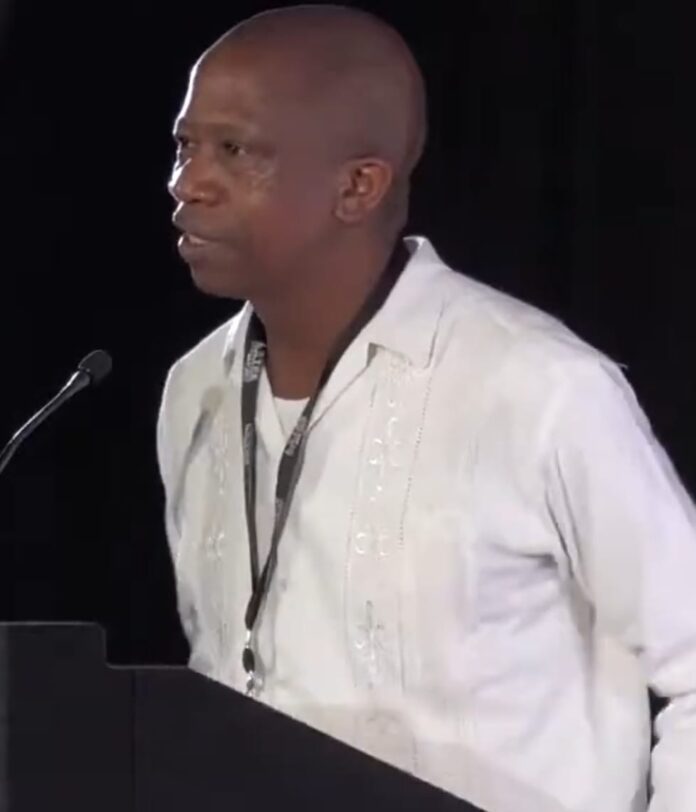Former chief director at the Department of Sport, Arts, and Culture, Charles Mabaso, has re-emerged as one of the adjudicators in the multidisciplinary advisory panel at the National Arts Council (NAC).
Mabaso, who gained public attention in 2019 after being implicated in an R100-million funding controversy during his tenure at the department, has been appointed for a three-year term starting in 2025.
According to a 2019 City Press article, millions of rand were allocated to several entities, including Ladysmith Black Mambazo, the National Empowerment Fund, the Indoni SA Cultural Organization, the Usiba Cultural Awards, and the Living Legends Trust Fund.
The publication alleged that these funds were distributed without approval from the relevant committee, in violation of the criteria for the Mzansi Golden Economy, eligibility requirements, and procedures.
It further claimed that Mabaso and another senior department official were “privy to decisions to fund the projects”.
The late Nathi Mthethwa was the sport, arts, and culture minister at the time.
Allegations of misconduct rejected
In his response to Sunday World, Mabaso confirmed his appointment but rejected all the allegations of misconduct.
“There has never been a finding or a judgment by any court against me regarding the alleged R100-million funding scandal at DSAC [Department of Sport, Arts, and Culture].
“My appointment at the NAC was subjected to a formal process, and I was found fit and proper to be appointed,” he said.
Despite his denial, Mabaso’s appointment has sparked widespread criticism from members of the arts sector, who say the move reflects poorly on governance and accountability in public institutions.
Playwright and arts activist Jayshree Parasuramen voiced strong criticism. “If the reports about Mabaso’s alleged involvement in the 2019 R100-million arts funding scandal are accurate, this development is deeply troubling,” said Parasuramen.
“For far too long, mismanagement and recycled leadership have weakened the very foundations of our creative sector.
“Positions that influence access to arts funding must be held by individuals whose integrity is unquestionable.
“The reappointment of anyone previously linked to financial irregularities not only undermines accountability but also damages the fragile trust between institutions and the artists they are meant to serve.”
System feels inaccessible
Parasuramen, who last received NAC funding in 2016, exacerbated longstanding frustrations within the creative community.
“Like many artists, I often wonder what is fundamentally wrong with our funding processes. Too many talented creatives continue to struggle to fund their projects, while a select few benefit repeatedly.
“The system feels opaque and inaccessible, stifling rather than supporting artistic independence.
“True transformation in the arts is not about policy documents or promises; it’s about restoring integrity, enabling creative entrepreneurship, and building sustainable artistic ecosystems in every community.
“Accountability and transparency must remain the cornerstones of rebuilding trust in our institutions. Anything less keeps us trapped in a cycle of disillusionment,” she said.
Arts practitioner William Mafumba also expressed alarm over the appointment, arguing that individuals whose reputations remain under question should not occupy decision-making roles in government institutions.
“Mabaso’s appointment is deeply worrying and sends the wrong message about accountability and ethical governance. The fact that he was never found guilty in a court of law does not necessarily mean he is innocent,” Mafumba said.
“There is still a cloud hanging over his name, and questions about his integrity and past conduct remain unanswered.
“When public confidence in government institutions is already fragile, such appointments only deepen mistrust and fuel perceptions of impunity.”
Professional standing
Meanwhile, NAC chairperson Eugene Botha previously told Sunday World: “These adjudicators were selected for their expertise, integrity, and commitment to ensuring a fair, transparent, and credible adjudication process.”
However, Botha declined to disclose their names.
“This decision has been taken to safeguard the integrity of the adjudication process and protect the well-being of those serving on the panel.
“In previous cycles, panel members were subjected to undue pressure, including unsolicited contact and, in some instances, threats once their identities became known. Such circumstances compromise both their safety and the fairness of the process.
“We wish to assure the public and all stakeholders that the panel comprises individuals of proven experience, professional standing, and expertise across a range of artistic disciplines.
“Their selection followed a rigorous and transparent process to ensure credibility. The adjudicators’ role is to guarantee that the allocation of resources is conducted fairly and in line with the NAC’s mandate to support and advance the arts sector in South Africa.”



